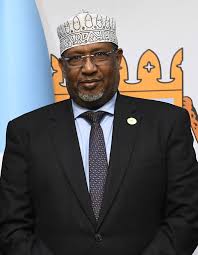 Introduction
Introduction
In the intricate tapestry of Somali politics, few figures have navigated its complexities with as much resilience and influence as Aden Mohamed Nuur Madobe. Born on April 15, 1956, in Hudur, the capital of Bakool region, Madobe’s journey from a clan-based militia leader to a prominent national politician underscores his adaptability and commitment to Somalia’s stability. This article delves into his multifaceted career, examining his roles, challenges, and the indelible mark he has left on the nation’s political landscape.
Early Life and Clan Affiliation
Aden Madobe hails from the Hadame subclan of the Rahanweyn (Digil and Mirifle) clan family. His upbringing in Hudur, a region historically influenced by clan dynamics, provided him with a deep understanding of Somalia’s complex social fabric. This background would later play a significant role in his political endeavors, especially in mediating clan-based conflicts and fostering unity.
Rahanweyn Resistance Army (RRA): A Military Leader’s Emergence
Madobe’s entry into the political arena was through the Rahanweyn Resistance Army, a militia formed in the 1990s to protect the interests of the Rahanweyn clan during the Somali Civil War. Serving as the First Deputy Chairman, Madobe was instrumental in the group’s operations. The RRA’s alliance with Ethiopia in the late 1990s, particularly in training its forces, highlighted Madobe’s strategic approach to regional security. Despite internal rifts, notably with fellow leader Hassan Mohamed Nur “Shatigadud,” Madobe’s leadership remained pivotal in the group’s activities.
Transition to National Politics
As Somalia’s political landscape evolved, so did Madobe’s aspirations. In January 2005, he was appointed Minister of Justice in the nascent Transitional Federal Government (TFG) under Prime Minister Ali Mohamed Ghedi. This role marked his shift from militia leadership to formal governance. However, his tenure was short-lived, and by 2007, he was elected Speaker of the Transitional Federal Parliament, succeeding Sharif Hassan Sheikh Aden. His election was a testament to his growing influence and the trust placed in him by his peers.
Acting Presidency: A Brief but Defining Moment
From December 29, 2008, to January 31, 2009, following the resignation of President Abdullahi Yusuf Ahmed, Madobe served as the acting President of Somalia. This interim period was marked by efforts to stabilize the nation and pave the way for a new leadership. While his presidency was brief, it underscored his capability to assume the highest office during times of national uncertainty.
Ministerial Role and Continued Influence
In January 2014, Madobe was appointed Minister of Industry and Commerce in Prime Minister Abdiweli Sheikh Ahmed’s cabinet. This position allowed him to influence Somalia’s economic policies and contribute to the nation’s development agenda. His experience in governance and his understanding of Somalia’s economic challenges were assets in this role.
Speaker of the Federal Parliament: A Return to Leadership
Madobe’s political journey came full circle when he was elected Speaker of the House of the People (Lower House) of the Federal Parliament of Somalia on April 30, 2022. His election was a significant milestone, reflecting his enduring influence and the respect he commands within Somalia’s political circles. As Speaker, Madobe has been at the forefront of legislative processes, advocating for reforms and representing the interests of the Somali people.
Jubaland: A Regional Power Play
Parallel to his national roles, Madobe has been a central figure in Jubaland’s political landscape. In October 2012, he was appointed interim head of the Jubaland Administration after his forces, with the support of the Kenya Defence Forces, captured the strategic port city of Kismayo from Al-Shabaab. Subsequently, in May 2013, he was elected interim president of Jubaland. His leadership in the region has been characterized by efforts to balance federal and regional interests, often navigating tensions between the two.
Tensions with the Federal Government
Madobe’s relationship with Somalia’s federal government has been complex. In 2024, Jubaland re-elected him for a third term. However, the federal government, led by President Hassan Sheikh Mohamud, opposed the election, citing its conduct without federal involvement. This disagreement led to reciprocal arrest warrants between the federal and Jubaland governments, highlighting the ongoing power struggles and the challenges of federalism in Somalia.
Legacy and Impact
Aden Madobe’s legacy is multifaceted. As a militia leader, he played a crucial role in defending his clan’s interests during the civil war. Transitioning into national politics, he held significant positions that influenced Somalia’s governance. His leadership in Jubaland has been instrumental in shaping the region’s political trajectory. Despite controversies and challenges, Madobe’s resilience and adaptability have solidified his status as a key figure in Somalia’s political history.
Frequently Asked Questions (FAQs)
-
What is Aden Madobe’s clan affiliation?
-
Aden Madobe belongs to the Hadame subclan of the Rahanweyn (Digil and Mirifle) clan family.
-
-
What role did Madobe play in the Rahanweyn Resistance Army?
-
He served as the First Deputy Chairman, leading the militia during the Somali Civil War.
-
-
When did Madobe serve as Somalia’s acting president?
-
From December 29, 2008, to January 31, 2009.
-
-
What position did Madobe hold in the federal government in 2014?
-
He was appointed Minister of Industry and Commerce.
-
-
When was Madobe elected Speaker of the Federal Parliament?
-
On April 30, 2022.
-
-
What is Madobe’s role in Jubaland?
-
He has served as interim president and has been a central figure in the region’s politics.
-
-
What led to tensions between Madobe and the federal government?
-
Disagreements over Jubaland’s elections and federal involvement.
-
-
Has Madobe faced any controversies?
-
Yes, his leadership in Jubaland and his affiliations during the civil war have been subjects of debate.
-
-
What is Madobe’s legacy in Somali politics?
-
He is recognized for his resilience, adaptability, and significant contributions to both national and regional governance.
-
-
How has Madobe influenced Somalia’s political landscape?
-
Through his roles in various governmental positions and his leadership in Jubaland, he has played a pivotal role in shaping Somalia’s political trajectory.
-